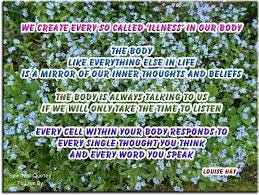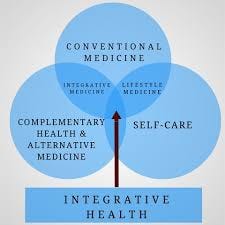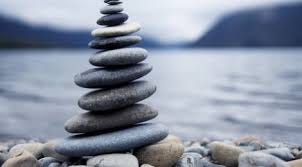What's Your Body Saying?
Does Anxiety and Stress Have a Ripple Effect on the Body? #128

Do you think people’s thoughts, feelings, beliefs, and attitudes positively or negatively affect their biological functioning and that what they do with their physical body affects their mental state?
One of my favorite authors, Louise Hay, certainly thought so. Louise, the founder of Hay House Publishing and the author of many self-help books, including, You Can Heal Your Life, said
I believe in that connection - although I need occasional reminders. It suggests a link between people’s thoughts, attitudes, behaviors, and physical health - the mind and the body.
The Florida Medical Clinic’s website defines the connection well.
The mind-body connection is an essential component of holistic medicine - the healthcare philosophy seeking to treat the whole person, not just their symptoms.
Now more than ever, doctors understand the importance of a comprehensive approach to care that includes mind, body, and spirit.
While scientists have long understood that our emotions can affect our bodies, we’re now beginning to understand how emotions influence health and longevity.
Given that older adults tend to have increased health concerns and more fragile bodies, considering that connection seems a topic to pursue.
There are many strategies for building the mind-body connection. I am currently working on mindfulness, an integrative approach to treatment if necessary, and guided imagery.
People can apply mindfulness to any situation throughout the day but typically practice meditation for a specific time. Mindfulness is the awareness of “some-thing,” while meditation is the awareness of “no-thing.”
I don’t do well with meditation, but in small doses, I can practice maintaining a moment-by-moment awareness of my thoughts, feelings, bodily sensations, and the surrounding environment through a gentle, nurturing lens.
The idea of mindfulness walking - especially in the woods - is appealing. It offers an opportunity to be present—aware of my breath, the sensations in my body, and the surrounding environment. It incorporates movement and is easy to practice because it can be done anytime and anywhere, alone or with other people.
I can use it while standing in a line, walking, or waiting for a takeout order.
If you have read past articles, you know about my reluctance to take prescription drugs. While there is a valid need for them, particularly for older adults with chronic disorders, they can be misused and overprescribed.
I take OTC drugs - Tylenol, Alleve for arthritis, and several supplements - but no prescription drugs. However, I remain open-minded if they are the best choice.
So, integrative medicine, seems like a positive alternative - it differs from holistic medicine because it includes medical treatments.
Integrative medicine uses an evidence-based approach to treat the whole person — mind, body, and soul. Your physical, emotional, mental, and spiritual needs are all involved, so integrative medicine combines therapies.
It seeks to understand the underlying cause of a person’s symptoms or condition by looking at the mind, body, and spirit.
I am learning more about this approach and looking for a doctor who practices it.
Guided imagery is a focused practice involving the five senses to ignite positive healing messages throughout the mind and body. The benefits of guided imagery are vast — research shows that the method can reduce fear and anxiety, lessen the frequency of headaches, and decrease psychological distress in cancer patients.
I’ve used guided imagery for years to manage pressure and anxiety, but am brushing up on it, given the stress of the past few years and the aging process.
Those are the tools I am developing now.
Living with a Serious Illness - The doctor told him, “You will be cured or dead in 6 months.” Everything was different in an instant. Priorities changed.”
Too Many Ills! Too Many Pills! “Multiple medications are absolutely necessary for some conditions, but the greater the number of medicines we ingest, the higher the safety risks.”
If you wish to contribute to my work, consider donating to the Alzheimers Association. This link below takes you to their website. The choice is yours.







This is an important topic. We are not mental or physical beings. We are just beings and it is all tied together. Stress leads to increased cortisol production which is one way that it actually leads to physical illness and more rapid aging.
This is huge stuff! I could chat with you about it for hours. Our body/mind/spirit are all connected and the more we can integrate them all the better we will feel. As you have said many times Janice, at some points in our life it isn't possible to put them all to work and we must accept that. But those times we can connect it makes a big difference.
There are so many ways to be mindful and I believe it starts with having the intention to do so. I got a lot out of the book Neuro Dharma: New Science, Ancient Wisdom and Seven Practices of the Highest Happiness by Rick Hanson, PhD. He offers super interesting science, especially about the brain, coupled with many actual easy things we can do in our daily life that have a huge overall impact.